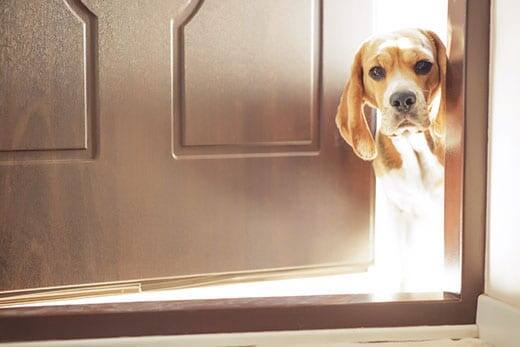
-
Find the right food for your pet
Take this quiz to see which food may be the best for your furry friend.
Find the right food for your pet
Take this quiz to see which food may be the best for your furry friend.
Featured products
 Adult 7+ No Corn, Wheat, Soy Chicken & Brown Rice Dog Food
Adult 7+ No Corn, Wheat, Soy Chicken & Brown Rice Dog FoodSupports energy level and beautiful coat in mature dogs
Shop Now Adult Perfect Weight & Joint Support Chicken Recipe Dry Dog Food
Adult Perfect Weight & Joint Support Chicken Recipe Dry Dog FoodThis weight management and mobility support dog food was created with Hill’s unique understanding of the biology of overweight dogs.
Shop Now Adult 7+ Perfect Digestion Chicken, Whole Oats & Brown Rice Recipe Dog Food
Adult 7+ Perfect Digestion Chicken, Whole Oats & Brown Rice Recipe Dog FoodScience Diet's breakthrough nutrition supports ultimate digestive well-being & healthy microbiome for dogs age 7+
Shop NowFeatured products
 Adult Perfect Digestion Chicken, Barley & Whole Oats Recipe Cat Food
Adult Perfect Digestion Chicken, Barley & Whole Oats Recipe Cat FoodScience Diet's breakthrough nutrition supports ultimate digestive well-being & healthy microbiome
Shop Now Perfect Weight Salmon & Vegetable Canned Cat Food
Perfect Weight Salmon & Vegetable Canned Cat FoodOver 70% of cats lost weight within 10 weeks when fed this nutrition
Shop Now Adult Savory Chicken Entrée Cat Food
Adult Savory Chicken Entrée Cat FoodPrecisely balanced nutrition with the delicious taste of savory minced chicken to help fuel the energy needs of cats during the prime of their life
Shop Now -
Dog
- Dog Tips & Articles
-
Health Category
- Weight
- Food & Environmental Sensitivities
- Urinary
- Digestive
- Joint
- Kidney
-
Life Stage
- Puppy Nutrition
- Adult Nutrition
- Senior Nutrition
Cat
- Cat Tips & Articles
-
Health Category
- Weight
- Skin & Food Sensitivities
- Urinary
- Digestive
- Kidney
-
Life Stage
- Kitten Nutrition
- Adult Nutrition
Featured articles
 Pet Food Storage Tips
Pet Food Storage TipsDiscover how and where to store your dry, as well as canned, dog and cat food. Learn how to find the "best before" dates on all Hill's pet food packaging.
Read More Water
WaterDiscover why water is the most important nutrient for your dog or cat to live a healthy life. Find out how much water your pet should consume each day.
Read More The Incredible Science Behind Your Pet's Microbiome
The Incredible Science Behind Your Pet's MicrobiomeLearn what a pet's microbiome is, how it contributes to your pet's gut & overall health, and why nutrition is important in maintaining healthy microbiomes.
Read More -
Find the right food for your pet
Find the right food for your pet


Does your dog sometimes seem to be barking at a wall? Are there certain parts of your house or your neighborhood that seem to make them nervous? If so, maybe you've wondered if your dog can see ghosts. Lots of pet parents think there's some connection between dogs and ghosts — that dogs can see or sense something people can't.
Let's take a look at why people think dogs can see ghosts and what might be at the root of dogs' mystifying behavior.
A Brief History of Dogs and Ghosts
If you suspect that your dog has a connection to the paranormal, you wouldn't be the first. In fact, cultures throughout history have considered dogs and ghosts to be closely linked.
According to Ancient History Encyclopedia, both the Tarascan and Aztec tribes of Mexico believed that dogs could see and would protect them against ghosts: "Both groups buried their dead with dogs who were thought to then serve the soul in the afterlife as both a guide through the underworld and as a protector against ghosts." Tarascans believed that a "spirit dog" would find bodies that hadn't been buried and lead that person's soul to the afterlife, so they wouldn't haunt the living. The Maya also believed in a spirit dog — in the underworld, they said the dog would help your spirit navigate to paradise. And in ancient Greece, people were thought to encounter a three-headed dog called Cerberus when their soul passed on to the other side.

Can Dogs See Ghosts?
Unfortunately, this is one of many unanswered questions humans have about dogs. To date, there's no evidence connecting dogs and ghosts — not to mention whether you believe the evidence for paranormal activity.
According to the American Kennel Club (AKC), however, many of dogs' seemingly unexplainable behaviors can be attributed to a combination of their heightened senses and the fact that, compared to humans, they're "more open to trusting what they feel and acting on those feelings accordingly." In contrast, we humans analyze everything we encounter; we're more suspicious.
The AKC also notes that dogs are incredibly attuned to things we might not notice — like changes in barometric pressure; faraway, high-pitched noises; subtle smells; and even objects or movements beyond our own field of vision.
All these senses enable dogs to notice activity we simply can't. Whether that activity includes the paranormal or not, though, remains to be seen.


Tasty Tips
Other Possible Explanations
The AKC suggests that if you've noticed your pet staring at the wall regularly and if you've ruled out the possibility of an infestation in the walls, it might be time to call your veterinarian. Staring at the wall can sometimes be a sign of a more serious issue, like canine cognitive dysfunction syndrome or partial seizures. If you notice your pet repeatedly exhibiting strange behaviors that may indicate that they're in pain or distress, definitely contact their vet.
Can dogs see ghosts? Right now, we don't have any scientific evidence to prove they do. But it is a fact that dogs are incredibly perceptive — more so than we often realize. Consider keeping a log of your dog's behavior and paying attention to patterns around the times when they seem to be attuned to sounds or vibrations you can't perceive. Perhaps you'll learn a bit more about your surroundings if you try to experience them from your pet's point of view.


Erin Ollila believes in the power of words and how a message can inform—and even transform—its intended audience. Her writing can be found all over the internet and in print, and includes interviews, ghostwriting, blog posts, and creative nonfiction. Erin is a geek for SEO and all things social media. She graduated from Fairfield University with an M.F.A. in Creative Writing. Reach out to her on Twitter @ReinventingErin or learn more about her at http://erinollila.com.
Related products

This weight management and mobility support dog food was created with Hill’s unique understanding of the biology of overweight dogs.

Delicious braised beef paired with tender vegetables in a succulent stew

Supports energy level and beautiful coat in mature dogs

Science Diet's breakthrough nutrition supports ultimate digestive well-being & healthy microbiome for dogs age 7+
Related articles

Understand the role that Omega-6 and Omega-3 fatty acids play in your dog's overall health, and how you can ensure they are getting enough.

Learn about Hill's puppy food and the nutritional benefit & high quality ingredients that it contains for your pup.

Proper nutrition for your pregnant or nursing dog is vital to her and her puppy's health. Learn what you should do provide her with the proper nutrients.

Large and giant breed puppies have different nutritional needs than other dogs. Learn how to provide the special care they need to grow up big and strong.

Put your dog on a diet without them knowing
Our low calorie formula helps you control your dog's weight. It's packed with high-quality protein for building lean muscles, and made with purposeful ingredients for a flavorful, nutritious meal. Clinically proven antioxidants, Vitamin C+E, help promote a healthy immune system.
Put your dog on a diet without them knowing
Our low calorie formula helps you control your dog's weight. It's packed with high-quality protein for building lean muscles, and made with purposeful ingredients for a flavorful, nutritious meal. Clinically proven antioxidants, Vitamin C+E, help promote a healthy immune system.

